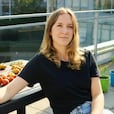The docuseries about Canadian comedians that shows it's fun (and funny) to be a 'killjoy'
Killjoy Comedy Season 2 follows a diverse group of performers pushing the boundaries of comedy in this country
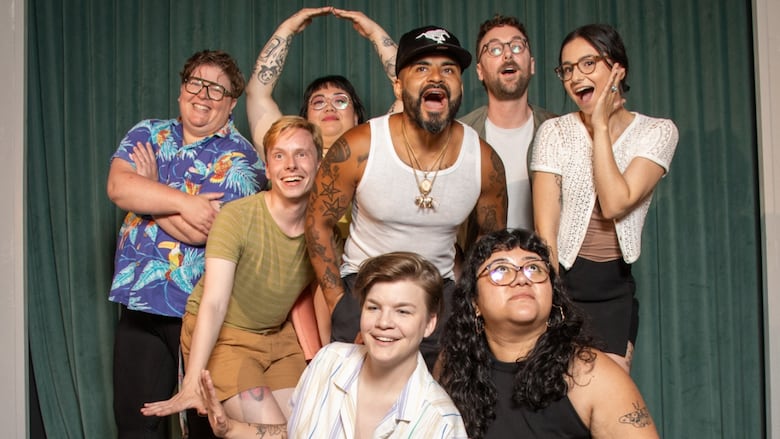
Don't get Shana Myara wrong: she's thrilled that her docuseries, Killjoy Comedy, was picked up for a second season on OUTtv. But she's also kind of surprised.
"It feels great to be back for a second season," she says. "It feels like quite an achievement to have one season under our belt. To actually have the opportunity to present the second season — it does feel very unlikely."
The North American comedy scene has historically been an overwhelmingly cis, white, male place. Myara created Killjoy Comedy, which she also produces and directs, as a way to expand Canadians' views of what comedy can be about — and perhaps more importantly, who can hold the mic.
"Killjoy calls out to other killjoys and says, 'Look, we're all here with this shared understanding of what comedy or activism can be,''' explains the Vancouver-based filmmaker, who first garnered attention for her 2020 documentary Well Rounded, which celebrates fat, queer bodies and was featured in Vogue. "The only fun that we're killing is the old, exclusionary, heterosexist, racist, ableist kind of fun that you would see in a comedy club so often."
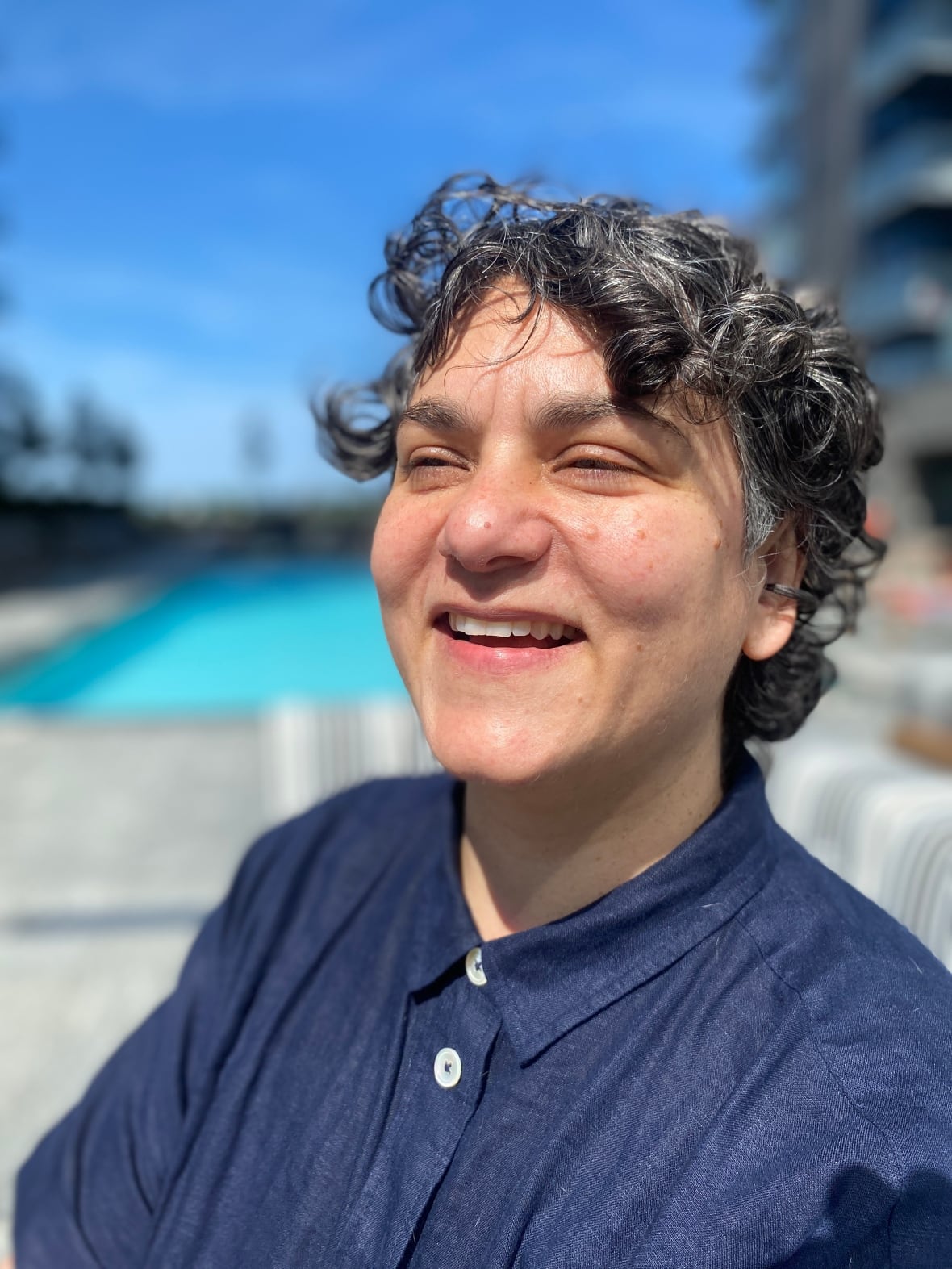
The show's name was inspired by U.K. scholar Sara Ahmed, who is best known for popularizing the phrase "feminist killjoy": a way to describe women who, when calling out sexism, are perceived to be ruining everyone else's "fun."
"The 'fun,' in that case," says Myara, "is really code for the old, closed systems."
Killjoy Comedy's second season follows six Canadian comedians in digestible 20-minute episodes. Each artist — be it Vancouver's queer improv duo Baby Syrup or El Salvador-born, Calgary-raised standup Marito Lopez — has their own distinct style, which is showcased through a mix of seated interviews and live performance clips. The throughline between each episode, and each artist, is a mission to push the boundaries of Canadian comedy, reframing the word "killjoy" as a badge of honour for those bold enough to wear it.
"When a standup series comes out, it can often be white and male and straight — and obviously there are a lot of talented straight, white, male comics," says standup Niki Mohrdar, who is featured in Season 2. "And I'm not saying they don't deserve to have a platform. But I like that Killjoy centres diverse voices, and that they really try to prioritize comics who might be talking about traditionally or conventionally uncomfortable or difficult topics and making them funny. I think that's an interesting challenge for a comedian."
Mohrdar was born in Iran and moved to Canada when she was three. As a result, a lot of her comedy discusses what it's like to be an immigrant.
"I was always fed the multiculturalism narrative in Canada: that Canadians really value multiculturalism, and that racism isn't really a thing here, and that it's sort of this post-racial utopia," she says. "And that never really aligned with my experiences of being Canadian and living in Canada."
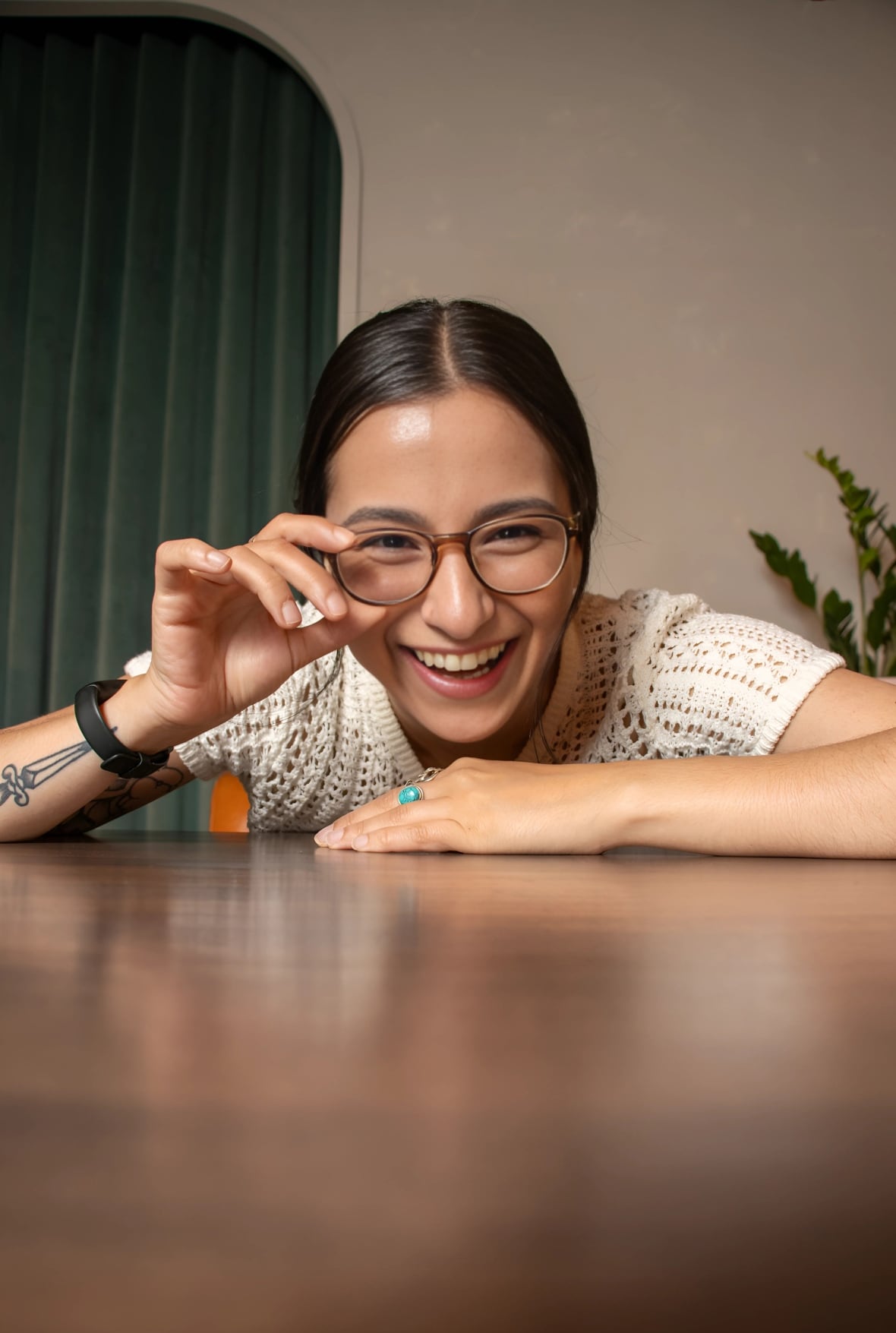
The Vancouver-based comedian also doesn't shy away from her bisexual identity, unafraid to poke fun at herself and her romantic choices. In one standup clip during her episode, she mentions that she is a "proud woman-loving woman." After some applause, she continues: "A little bit of a misleading statement, because I do also love men. I just don't know that I'm, like, proud of it." The audience erupts.
"I usually want to make fun of the things that bug me the most," she reflects. "It feels antithetical, because you want to just let go of things that are bothering you or that maybe feel a bit sad. But that's what a lot of comedians do: focus on that and find a way to make it funny, and make fun of it, and reclaim that experience for themselves."
Jackie Hoffart, a standup, filmmaker and comedy show producer featured in another episode, is similarly vulnerable in their act, discussing everything from getting top surgery, to being fat, to identifying as non-binary, to attempting to get pregnant. At the end of the day, comedy for them is really about human connection.
"The vulnerability is part of the magic," they say. "What makes standup fun and in some ways hard to give up — even if I wanted to, I feel like I'd keep getting sucked back into it — is the connection that you make with people in the room."
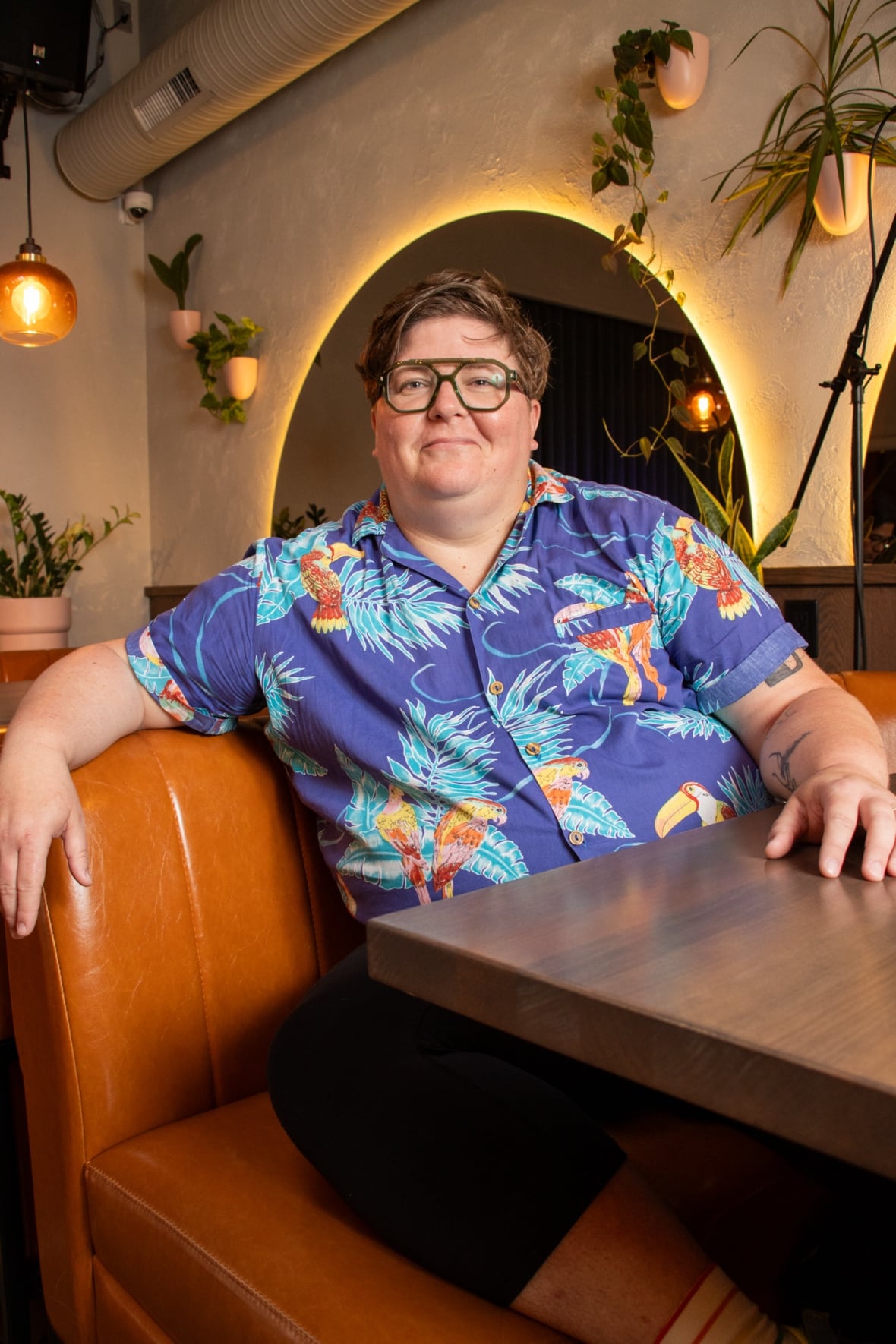
Through their own standup sets and the shows they produce around Vancouver, they say the goal is largely the same: to "help folks who maybe think of standup comedy as something that's a bit offensive or racist or sexist, and to show them that there's a totally different world out there that's also available — and that's also thriving, actually."
So much of mainstream comedy still adheres to the concept of punching down — as in, making fun of minority groups that are already marginalized and tokenized. Dave Chappelle has become infamous for his jokes about trans people. Bill Burr is frequently called out for being racist and sexist. Matt Rife made headlines for a joke about domestic violence.
Killjoy Comedy subverts that trend by spotlighting comedians from those marginalized and tokenized communities and helping the audience understand that there's more to comedy than cheap shots. These folks are more interested in talking about subjects like racism, sexism, homophobia and transphobia that are too often considered taboo — and they still manage to be wickedly funny.
The smartest comedy, after all, doesn't go for the lowest-hanging fruit. Instead, it climbs up, however shakily, to the top of the tree. The view is always better up there anyway.
Killjoy Comedy season two premieres on OUTtv on July 25.
